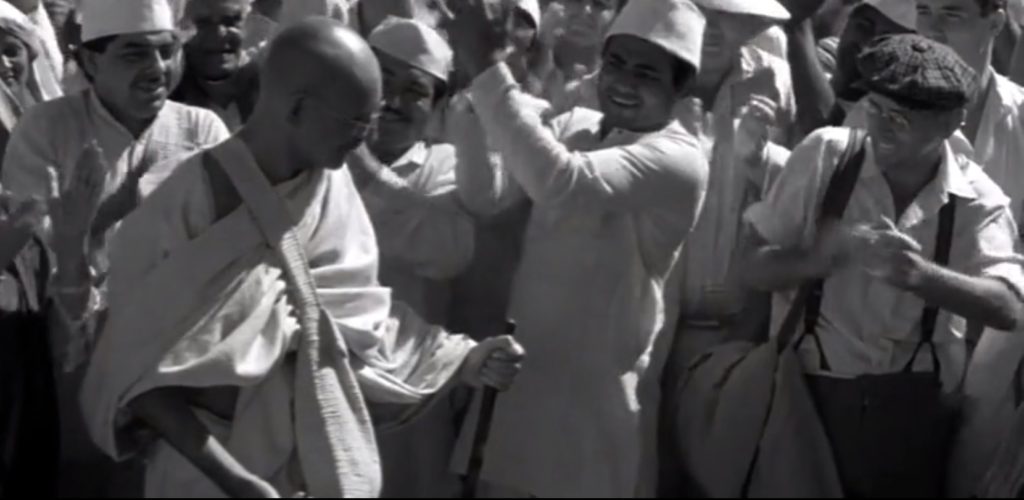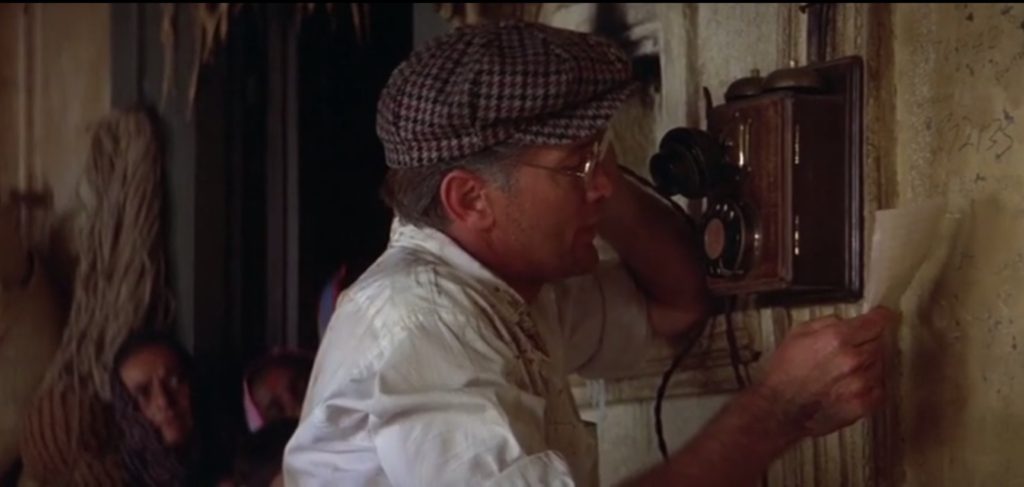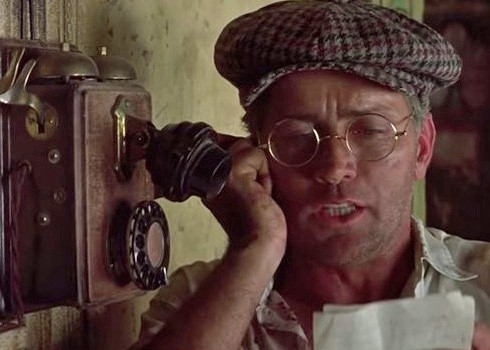I want to talk about something we don’t talk about enough. Journalism in movies.
I’ve been watching a lot of random old stuff lately, so the most recent egregious portrayal of journalism I’ve seen in a film is in 1982’s “Gandhi.” It’s a movie about historical figure Gandhi, starring Ben Kingsley as Gandhi. It also features Martin Sheen as a New York Times reporter named Walker (and Daniel Day-Lewis as a racist guy??!). It’s like three hours long and surprisingly boring for a movie about such a fascinating character. But I’m not here to talk about that.
I’m here to talk about Martin Sheen’s journalism. So, his character, Walker, shows up a couple different times in the movie to follow Gandhi around and write a story about him. I want to talk about his techniques, because they are terrible.
My credentials: I have been doing news reporting since high school. I have taken years of journalism classes and even have a degree in journalism. I have reported and written many stories. I am very knowledgeable of the way reporting and newswriting is supposed to work. I may not have won any Pulitzers or anything, but I know the rules and principles of journalism. And while rules may be made to be broken, a reporter from the New York Times would certainly be expected to adhere to journalistic rules and principles.
All that being said, let me list three reasons why Martin Sheen is a bad journalist in “Gandhi.”
1) He is never seen with a pad or pen the entire movie.
There are more scenes like the one above, but take note: Walker never writes anything down when he’s talking to Gandhi. Gandhi is one of the most famous spiritual thinkers of all-time. He has a million great quotes that you can find in all kinds of history books. True to form, in this scene alone, he drops a ton of great ones right in front of Walker. And Walker, inexplicably, doesn’t write any of them down! He asks several good questions of Gandhi, but WHAT’S THE POINT IF YOU LITERALLY NEVER WRITE ANYTHING DOWN?! Does he have some kind of photographic memory or some equivalent that allows him to remember every word Gandhi speaks to him? If he has this power, they don’t make it clear in this film. And if Gandhi’s so smart — and respects newspapers so much, as he says in this scene — why doesn’t he ever say, “Hey dog, are you writing any of this down? I’m dropping golden nuggs, man”?
Walker is going to have a very hard time writing an accurate, fact-based story relying solely on memory. This is a gaping, unforgivable plot hole.
2) He openly applauds during Gandhi’s Salt March.

Journalists are supposed to remain objective while covering stories. To not “cheer in the press box,” so to speak. You don’t pick sides, and you make every effort to keep emotion from interfering with the story you’re covering. You may disagree with this policy, but it’s the way things are, and a publication like THE NEW YORK TIMES was definitely following this standard in the early 20th century. Walker does a horrifying job of remaining objective. After Gandhi scoops some salt from the ocean at the conclusion of his iconic Salt March, the crowd begins cheering and applauding. Walker — like some kind of hack — decides to join in and start clapping and cheering, too, which is all too easy to do because he doesn’t have a pad or pen in his hands anyway.
Look, it’s okay to like the subjects you’re covering. It’s maybe even okay to tell them that. But you should never — NEVER — get caught on television cheering like you’re at the seventh game of the World Series. This is bad journalism.
3) His story is incredibly slanted.

There’s a scene toward the end of the movie where Sheen recites his story into a telephone (presumably for someone else to type up for him, I don’t know, we don’t do things that way now, we use computers, GET A COMPUTER WALKER). Here’s a little taste of that story:
“Whatever moral ascendancy the West held, it has lost it here today.”
Okay so … Save it for the editorial section, Walker. You should never — NEVER — be stating, as fact, that “the West has lost its moral ascendancy.” This is, unquestionably, an incredibly biased statement. You know what would have worked well here? A quote! Perhaps one from Gandhi, saying essentially the same thing (and probably in a much smarter way), or perhaps one from a British leader stating the opposite viewpoint. EXCEPT IT’S PROBABLY PRETTY TOUGH TO PUT QUOTES IN YOUR STORY WHEN YOU LITERALLY NEVER WRITE ANYTHING DOWN.
The New York Times should have much higher standards than this Walker guy. Bad reporting, bad conduct, bad story.
I hope he was fired.

When I saw the movie, I didn’t think about him not writing anything down. I guess I was concentrating on Gandhi’ words.
You bring up a great point.